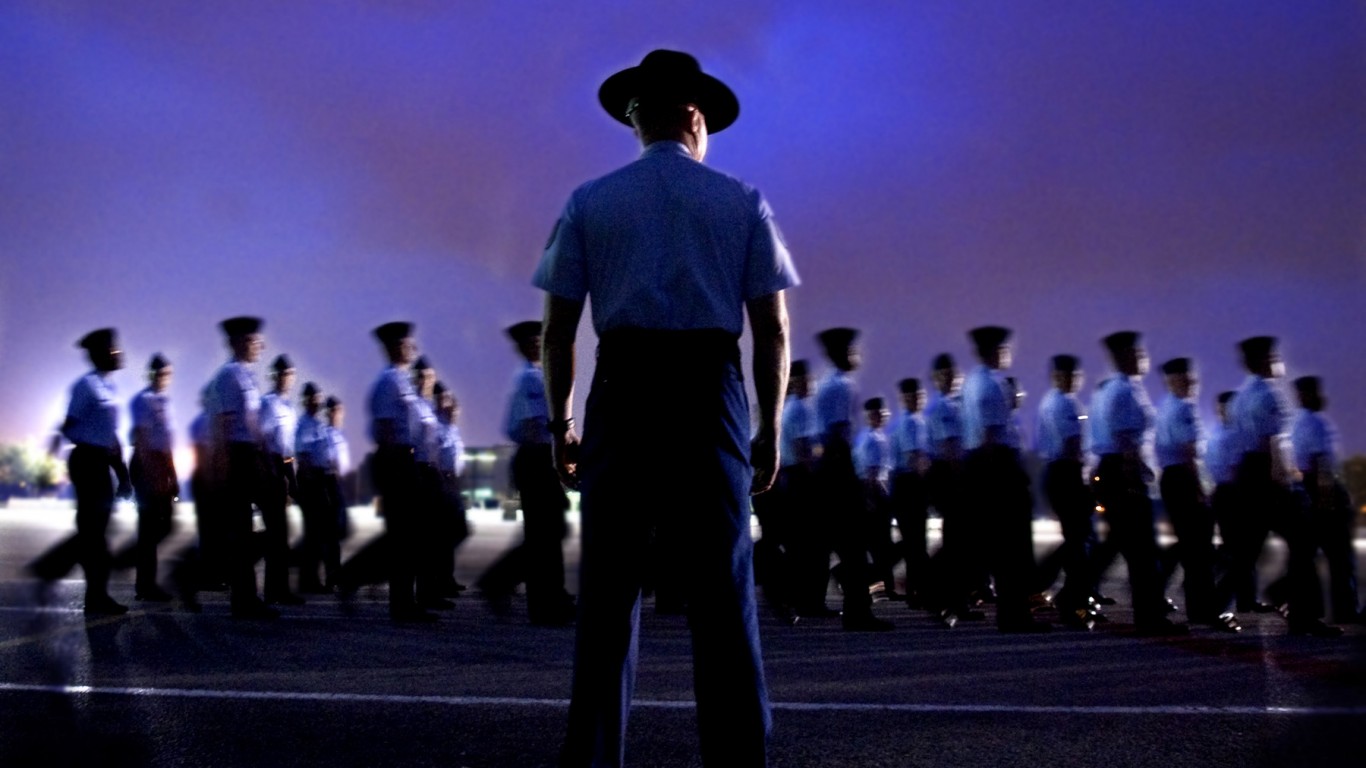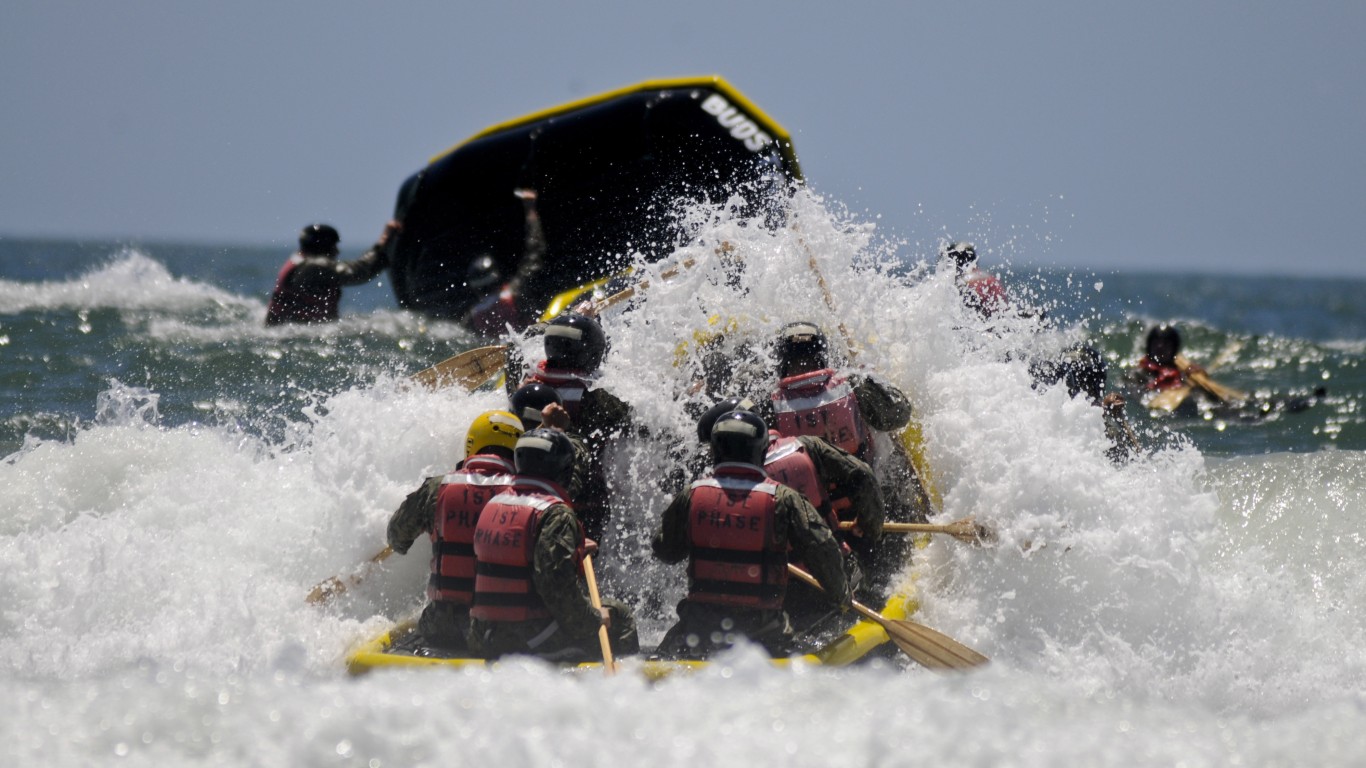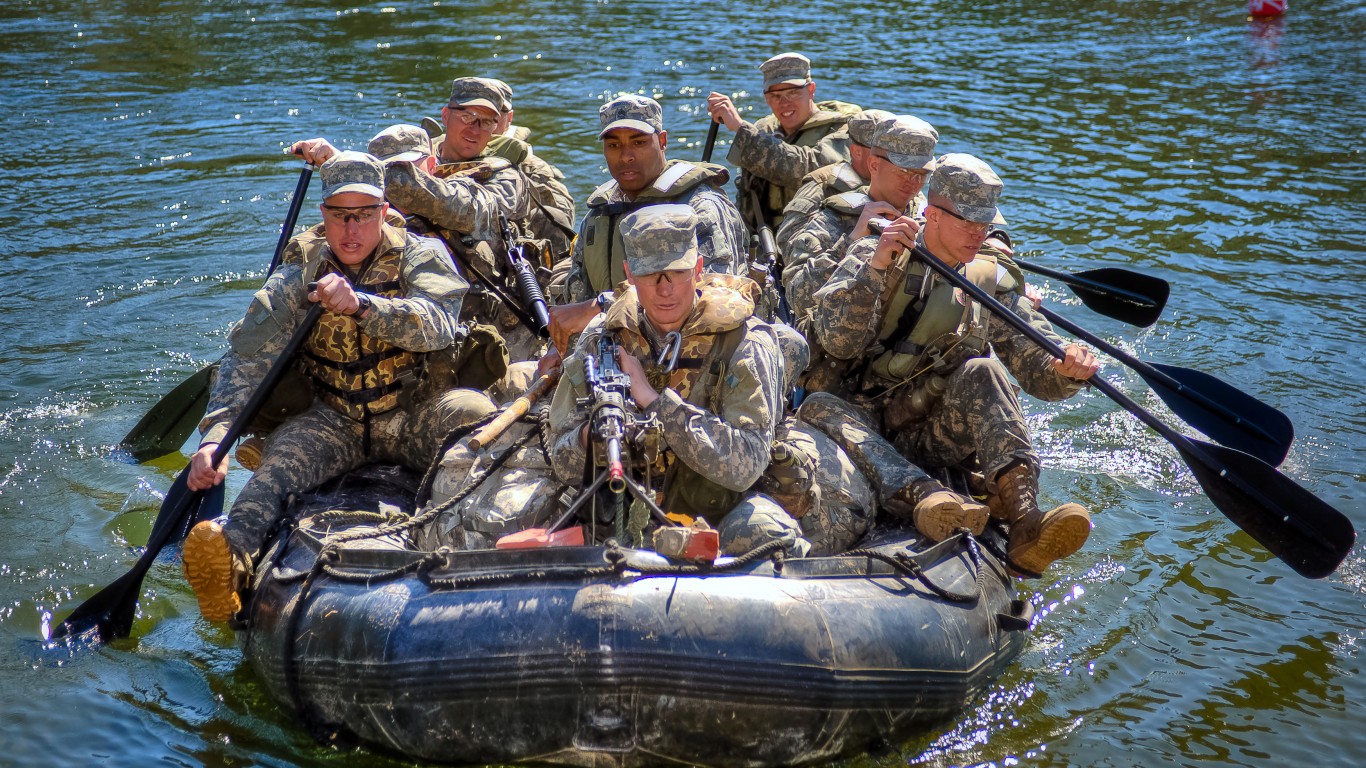
In times of rising geopolitical tensions across the globe, it pays off to have a strong military like the United States. The U.S. military is considered the best on the planet not just because it is the highest funded military, but also because it is one of the best trained across all of its branches.
From the Army to the Coast Guard and the Space Force, the U.S. military has a comprehensive training program in place. There are different tiers of training for different operational units such as the Green Berets or Navy SEALs.
To determine where the U.S. military trains its forces across all branches, 24/7 Wall St. reviewed information on Military OneSource, a Department of Defense-funded information resource for members of the armed services. We listed the military bases alphabetically and included the training conducted at each base and for which branch. There are multiple bases where a wide variety of training occurs and others where it is similar training but at different locations.
Some of the military installations on the list house multiple training facilities for multiple units and even multiple military branches. For instance, some units need to complete pararescue training, which is a prerequisite for more specialized operators so there is some crossover training between units at certain bases. (Also see, the largest military base in each state.)
Similarly, basic training for the Army is spread across multiple bases because of the sheer number of recruits. The same goes for the Marine Corps. However, just because these recruits may train in different bases does not mean they are receiving different training. In fact, practically all of basic training is standardized down to the day for whatever set duration each branch requires. (Here is what it takes to be in 16 of America’s elite military forces.)
Here’s a look at where the U.S. trains its military:

Camp Geiger, North Carolina
>Branch: Marine Corps
>Type of training: Infantry Training Battalion: 59 days
[in-text-ad]
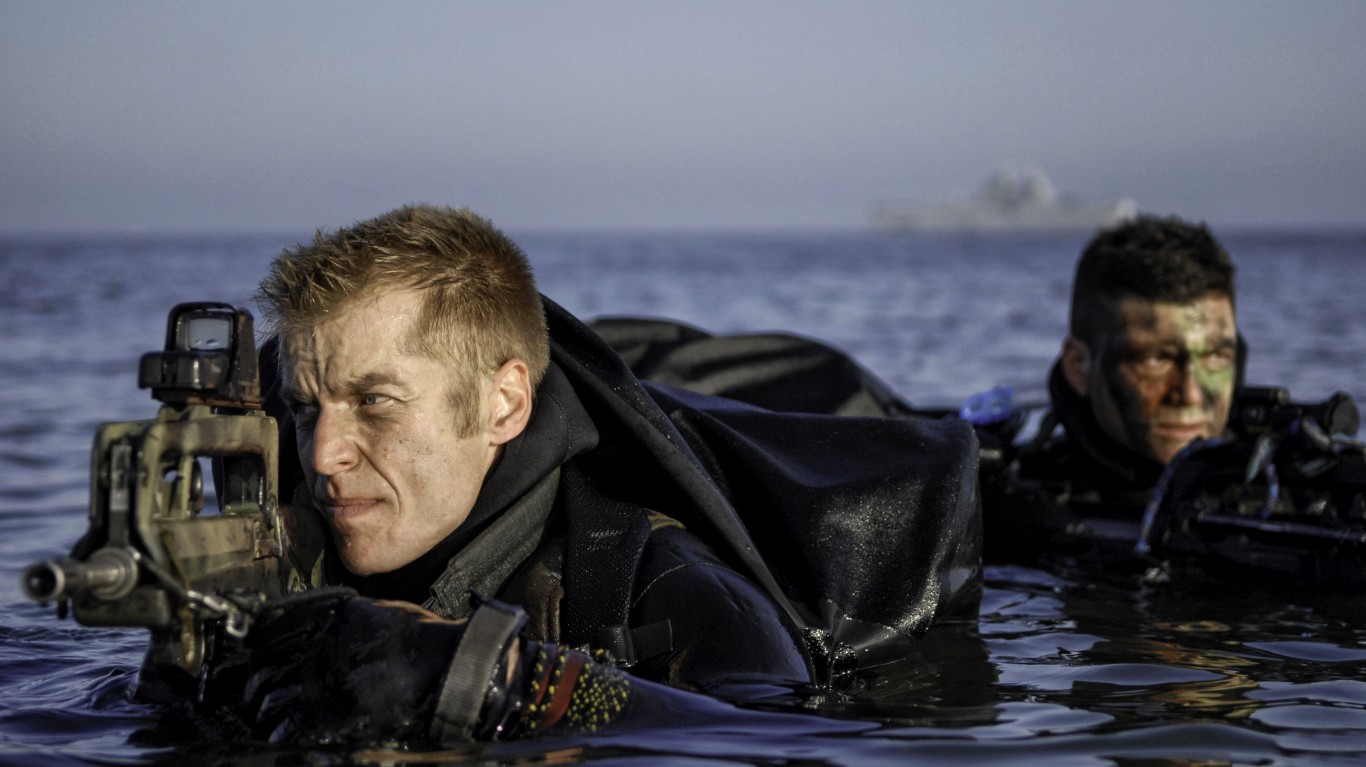
Camp Lejeune, North Carolina
>Branch: Marine Corps
>Type of training: Marine Raiders Training: 9 months
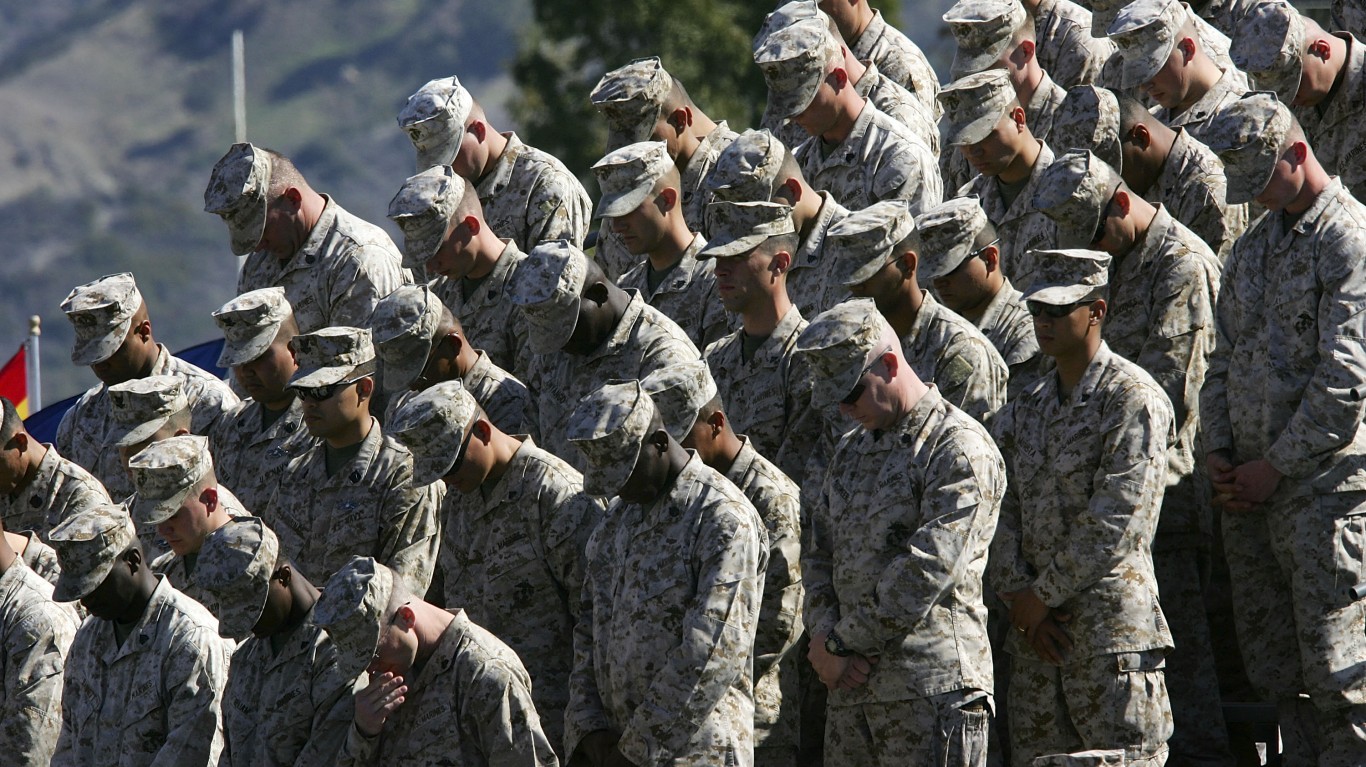
Camp Pendleton, California
>Branch: Marine Corps
>Type of training: Marine Combat Training Battalion: 29 days; Force Recon Training: 9 weeks
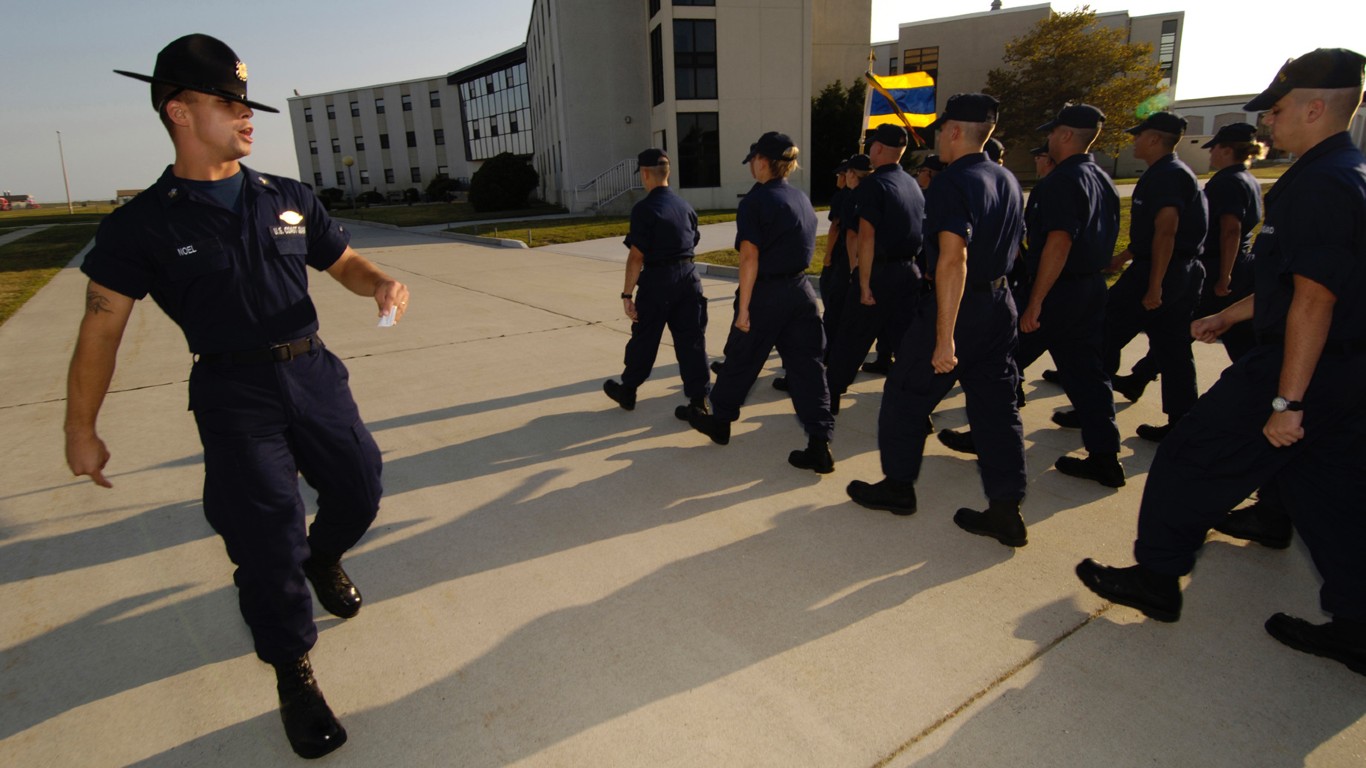
Cape May, New Jersey
>Branch: Coast Guard
>Type of training: Basic Training: 8 weeks
[in-text-ad-2]
Fairchild Air Force Base, Washington
>Branch: Air Force
>Type of training: Air Force Special Operations Weathermen Training: 138 weeks
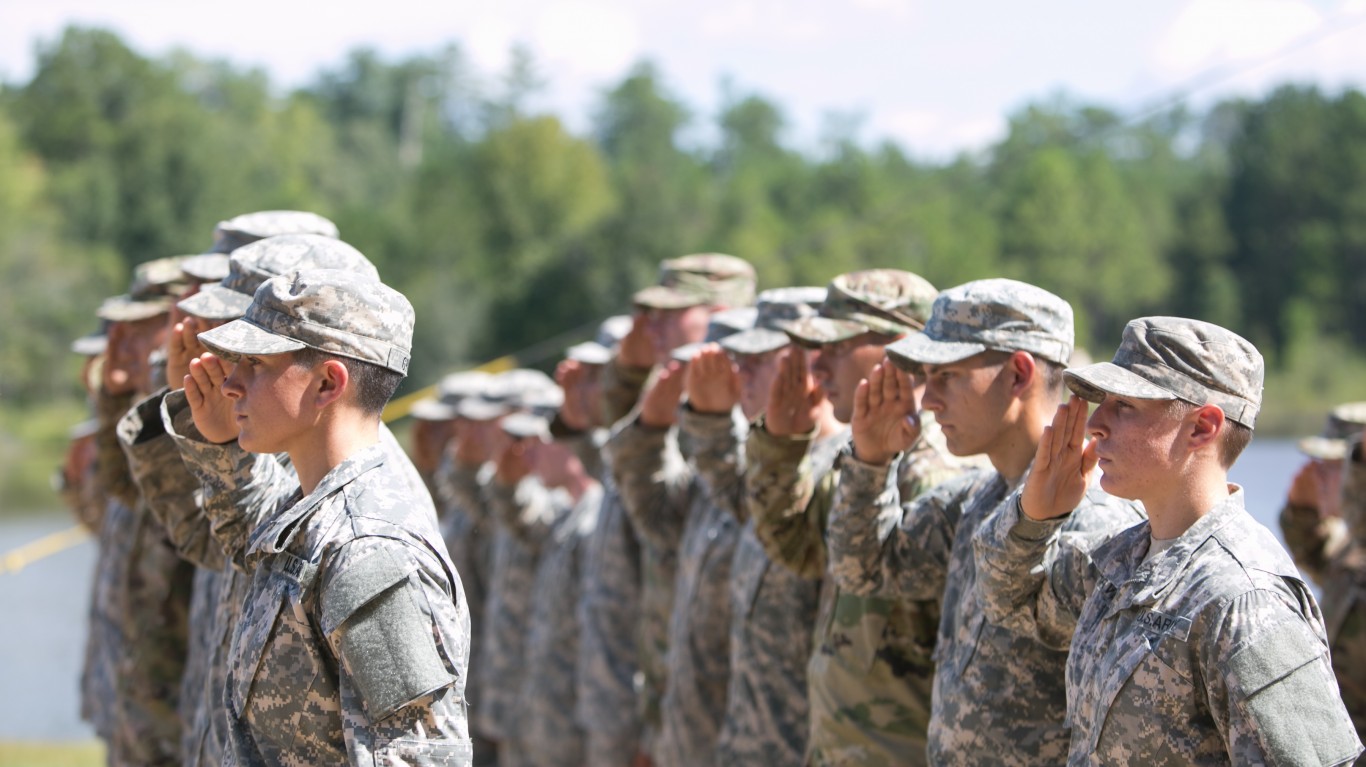
Fort Benning, Georgia
>Branch: Army
>Type of training: Basic Training: 10 weeks
[in-text-ad]
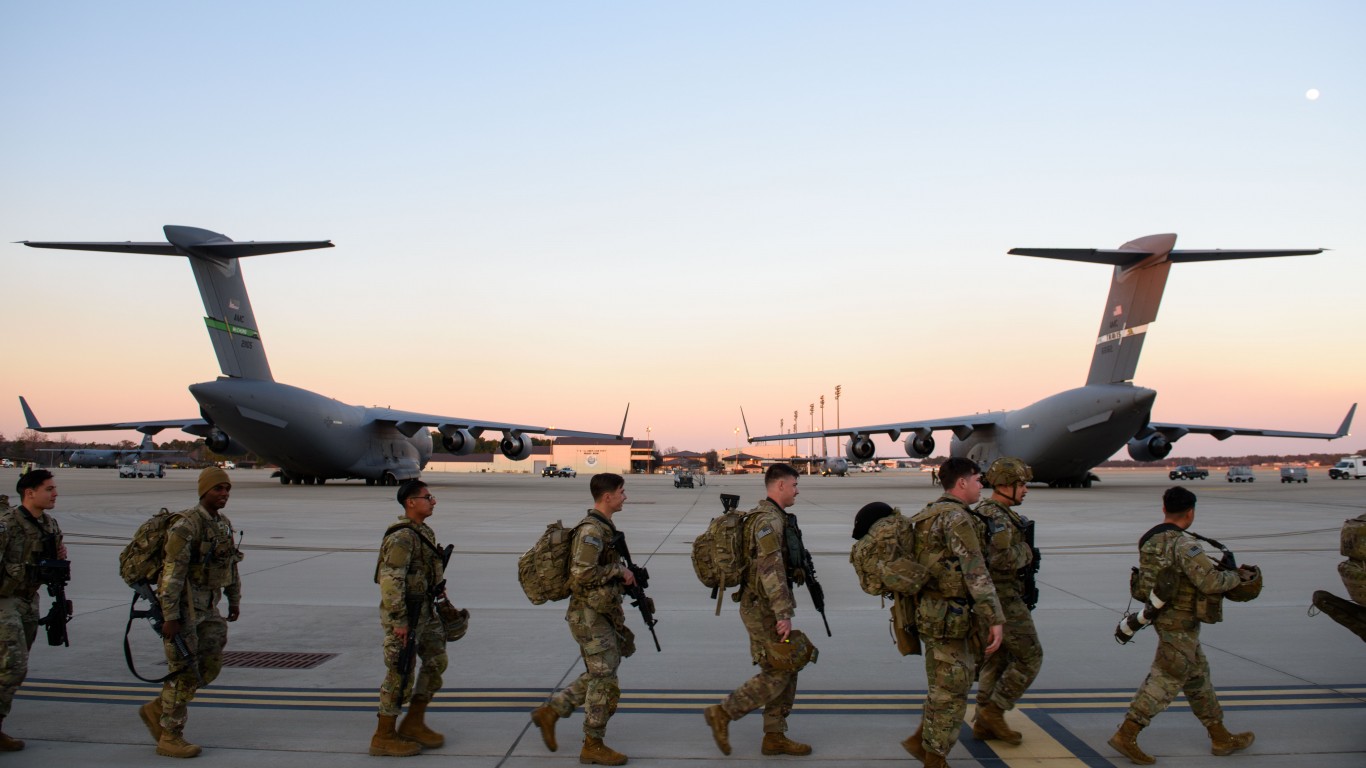
Fort Bragg, North Carolina
>Branch: Army, Air Force
>Type of training: Army Green Berets Training: 61 weeks; Delta Force Training: 6 months; Air Force Pararescue Specialists Training: 70 weeks
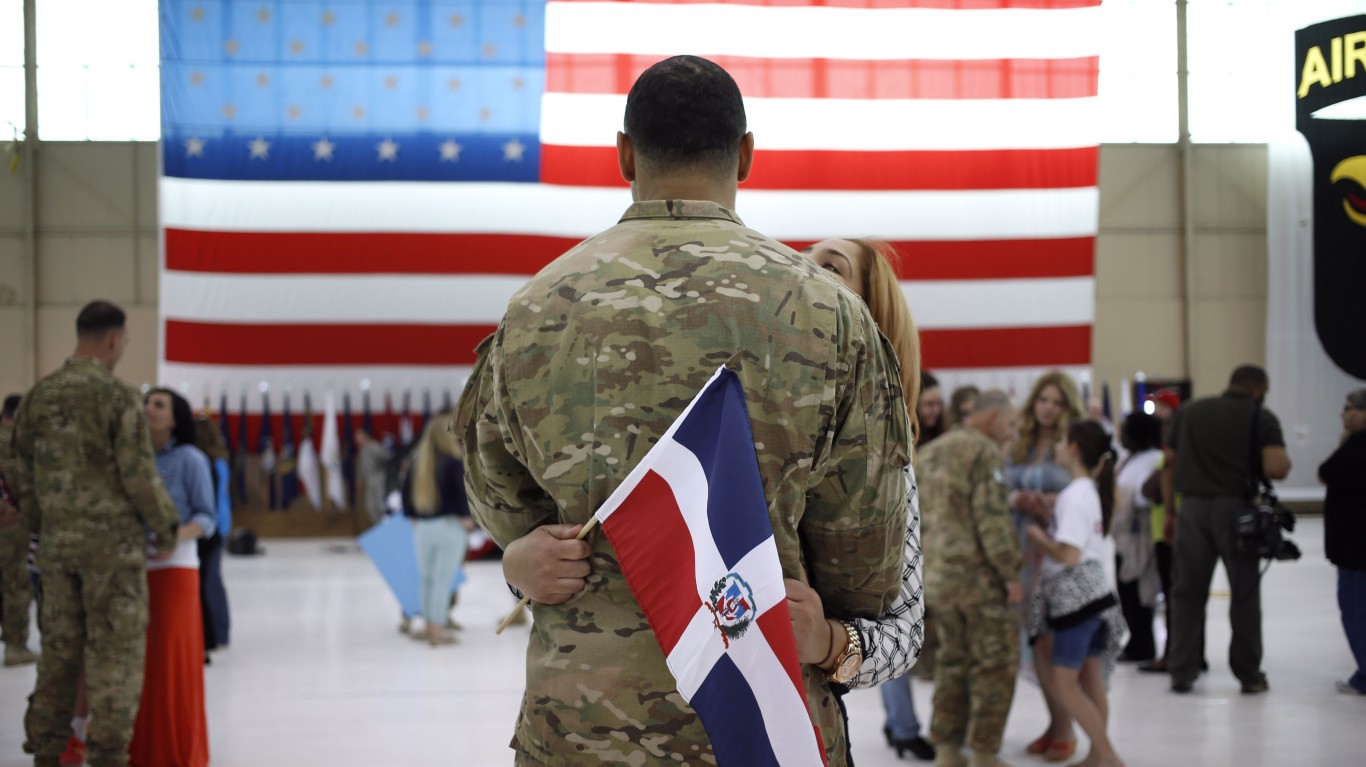
Fort Campbell, Kentucky
>Branch: Army
>Type of training: SOAR Night Stalkers Training: 6 weeks
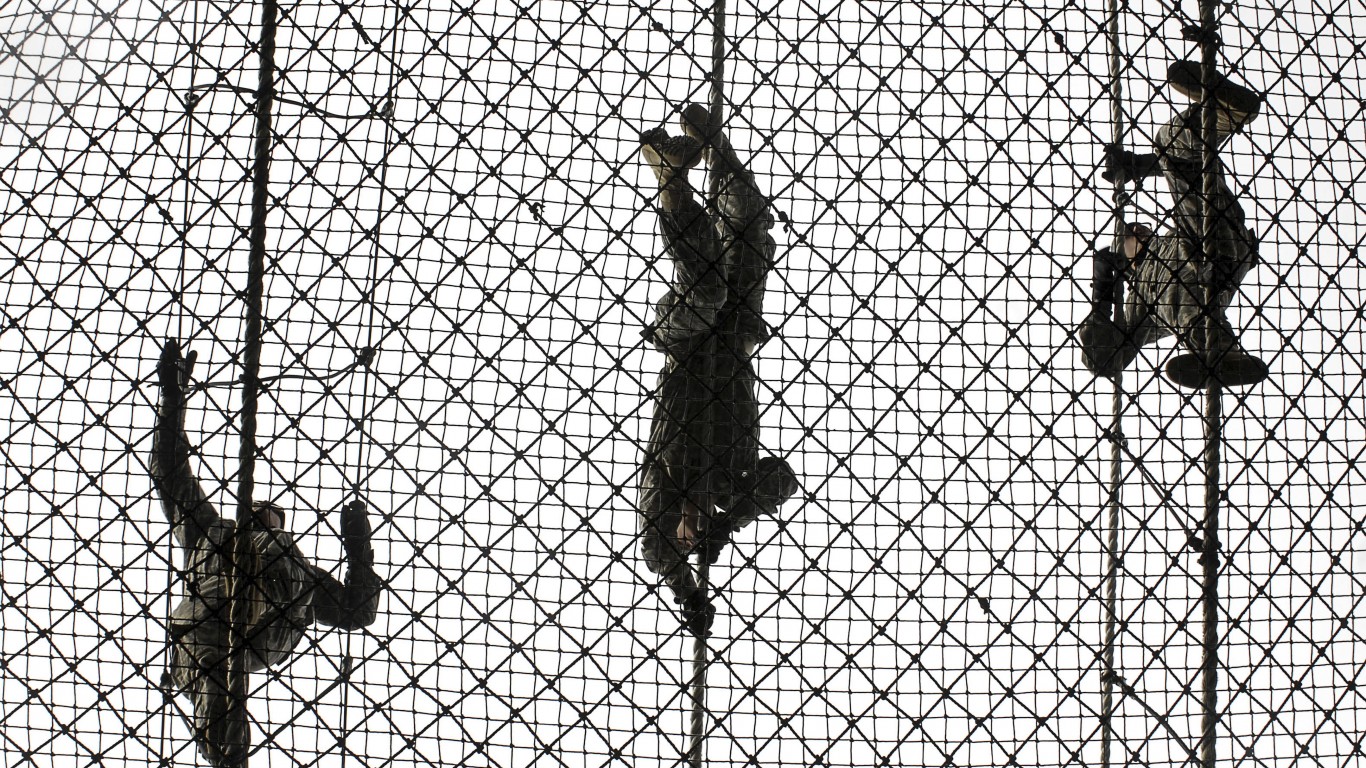
Fort Jackson, South Carolina
>Branch: Army
>Type of training: Basic Training: 10 weeks
[in-text-ad-2]
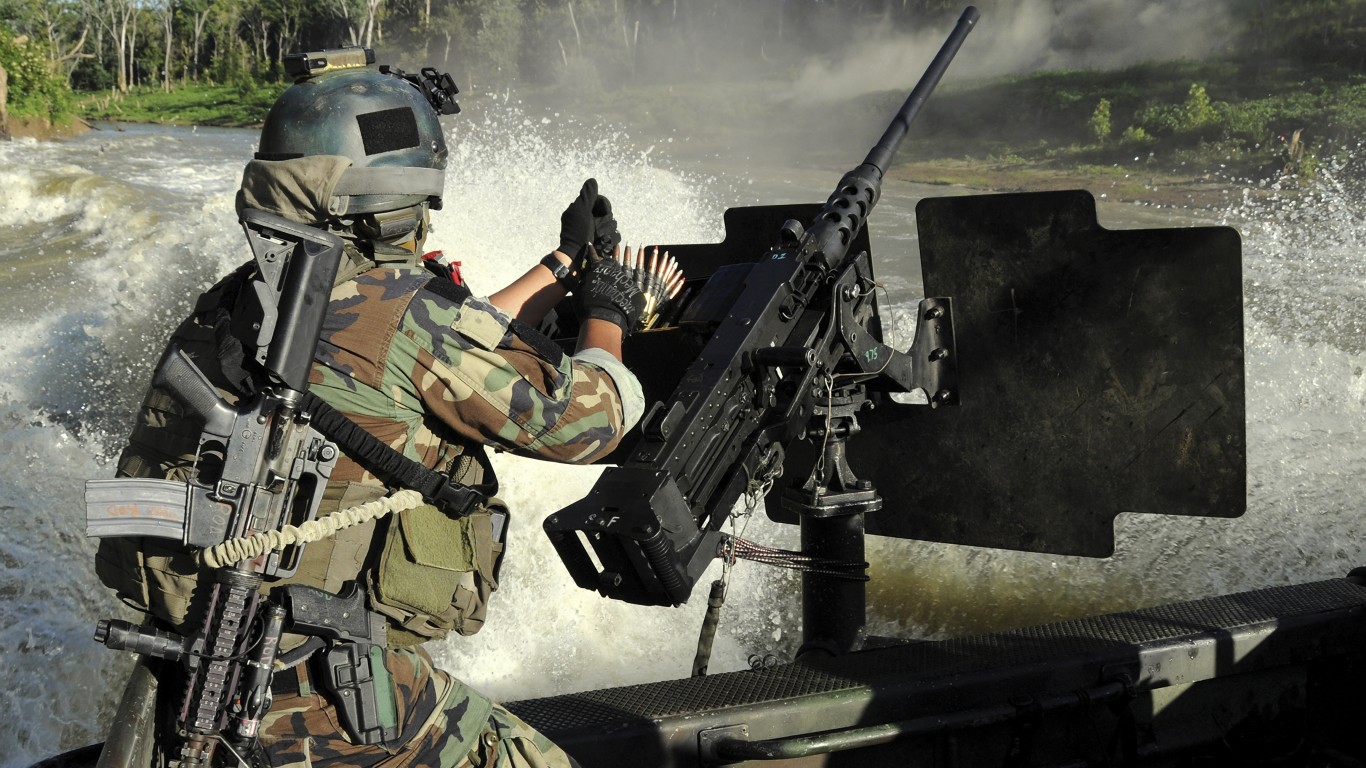
Fort Knox, Kentucky
>Branch: Army
>Type of training: Basic Training: 10 weeks
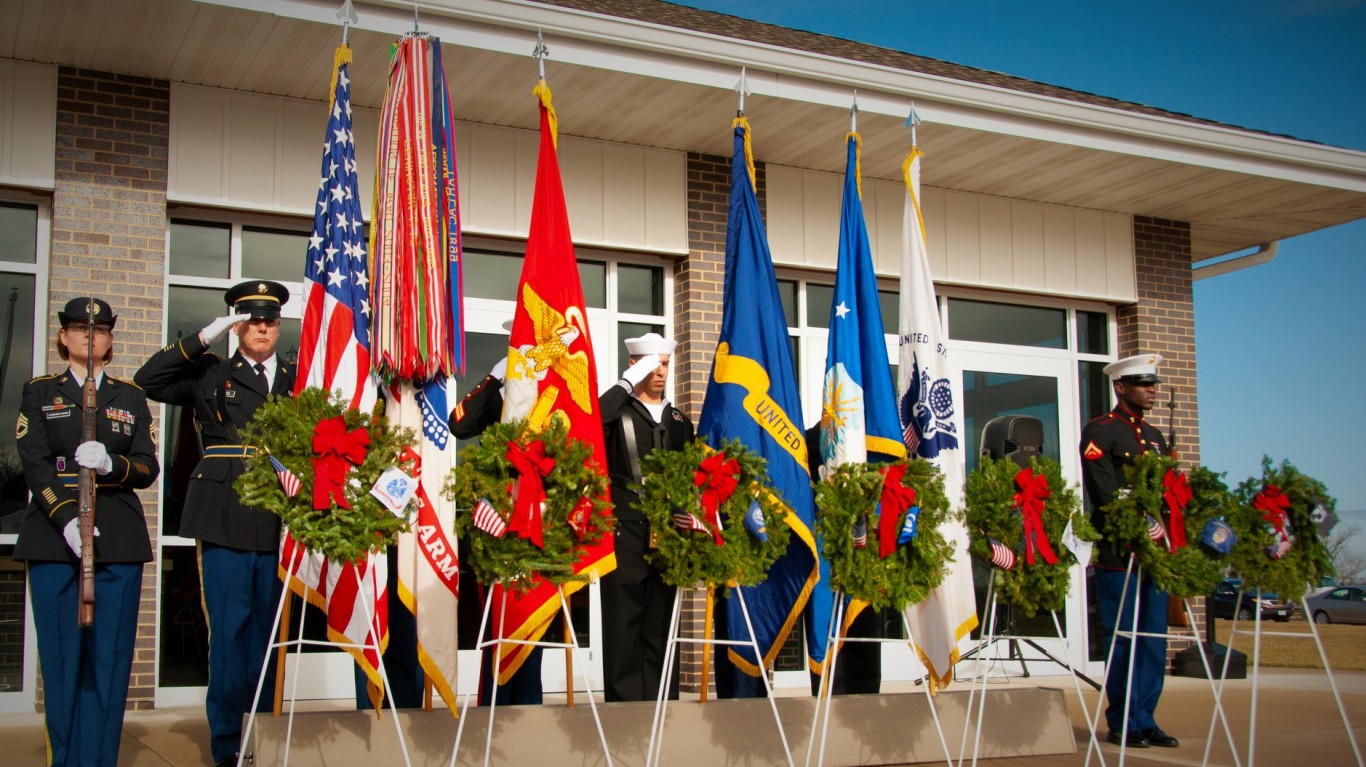
Fort Leonard Wood, Missouri
>Branch: Army
>Type of training: Basic Training: 10 weeks
[in-text-ad]
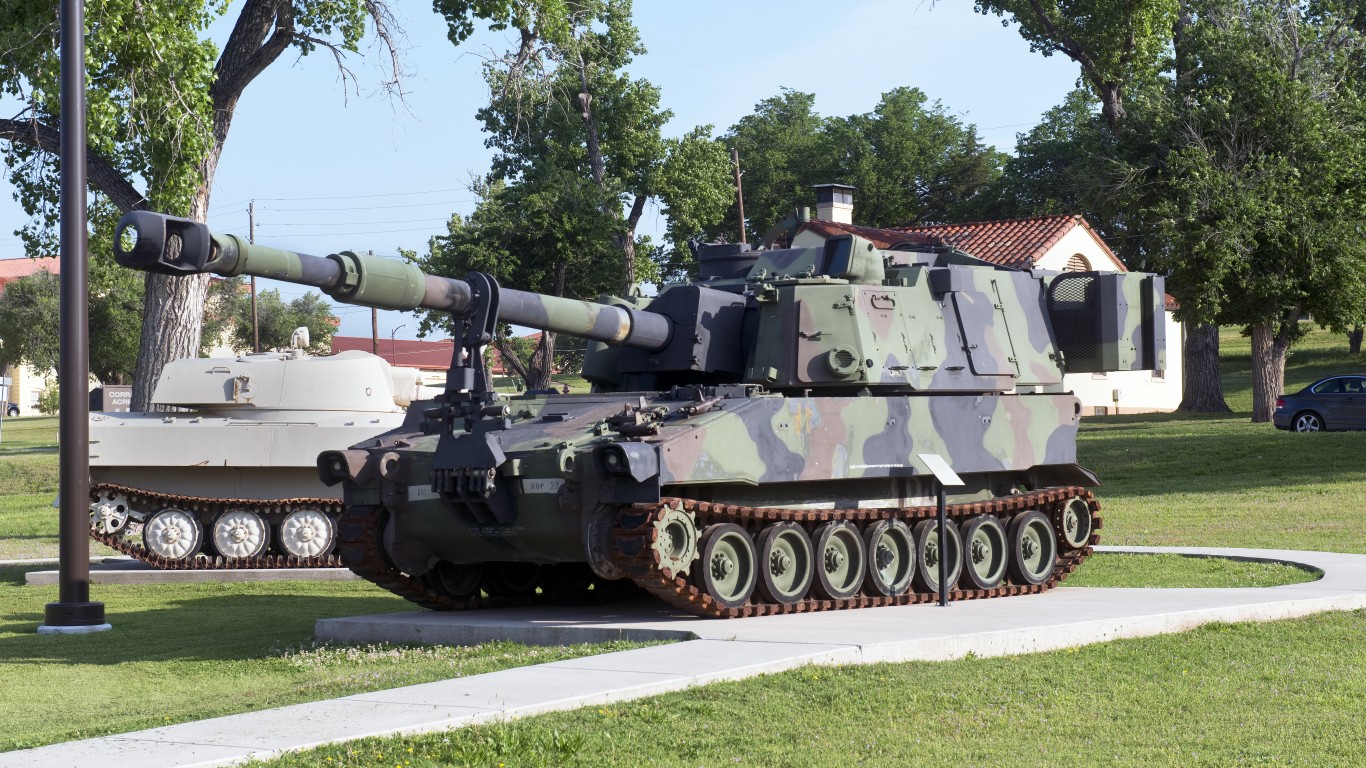
Fort Sill, Oklahoma
>Branch: Army
>Type of training: Basic Training: 10 weeks
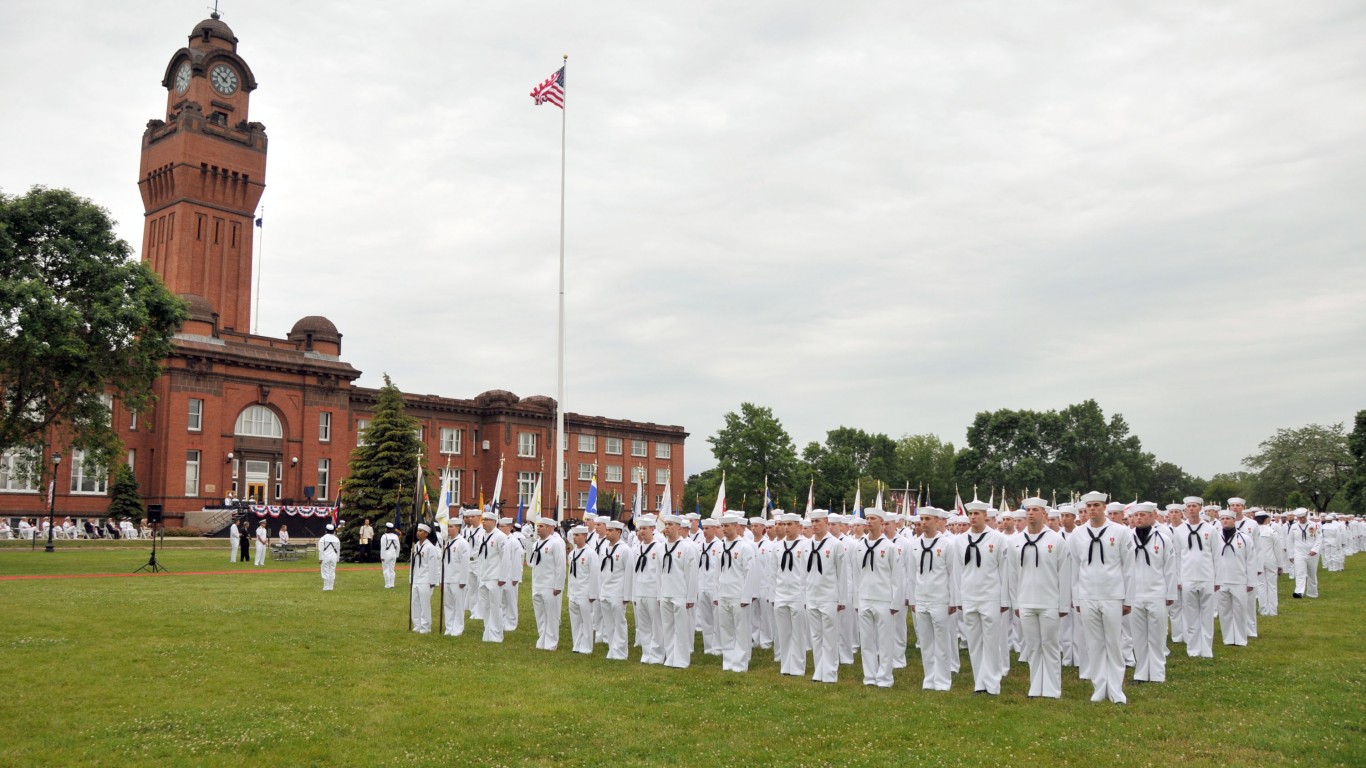
Great Lakes, Illinois
>Branch: Navy
>Type of training: Basic Training: 7 weeks
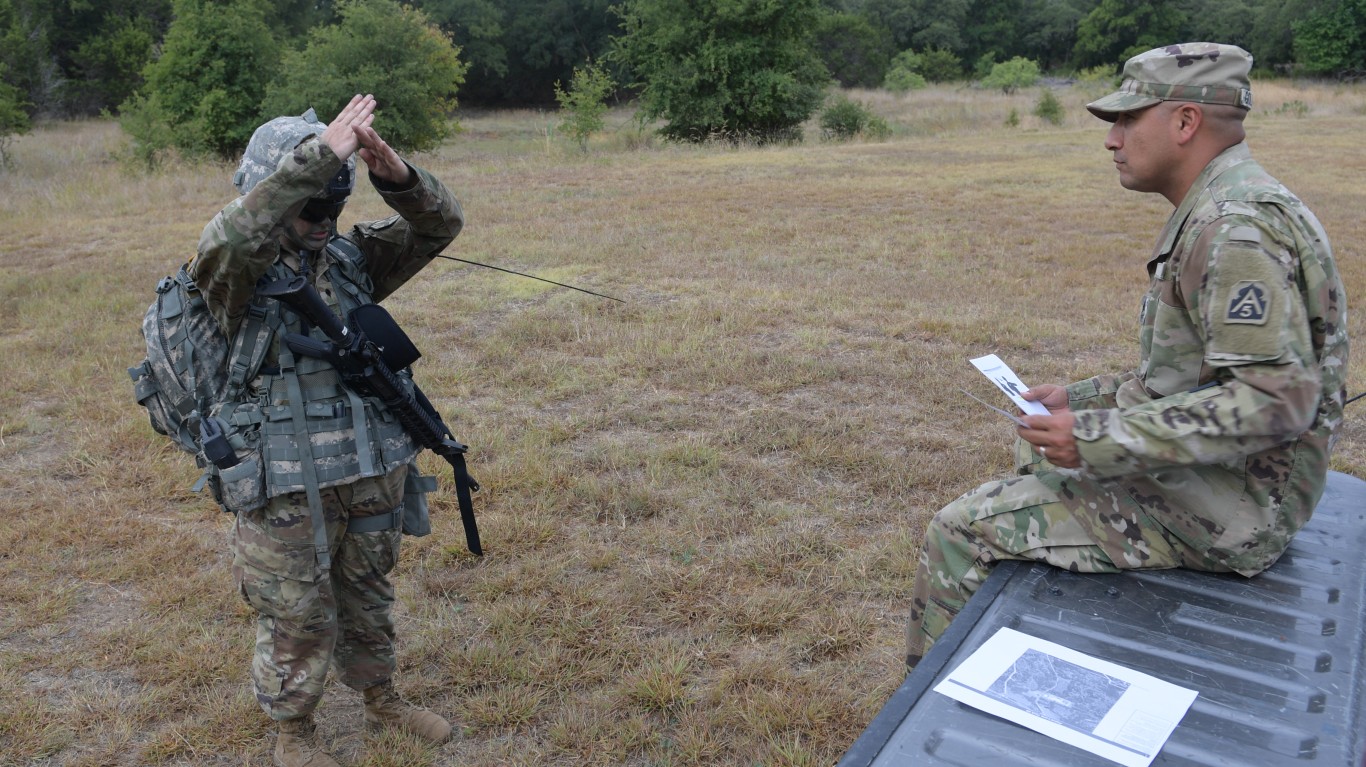
Joint Base San Antonio
>Branch: Space Force
>Type of training: Basic Training: 6 weeks
[in-text-ad-2]
Lackland Air Force Base, Texas
>Branch: Air Force
>Type of training: Basic Training: 8-and-a-half weeks; Air Force Combat Controller Training: 94 weeks
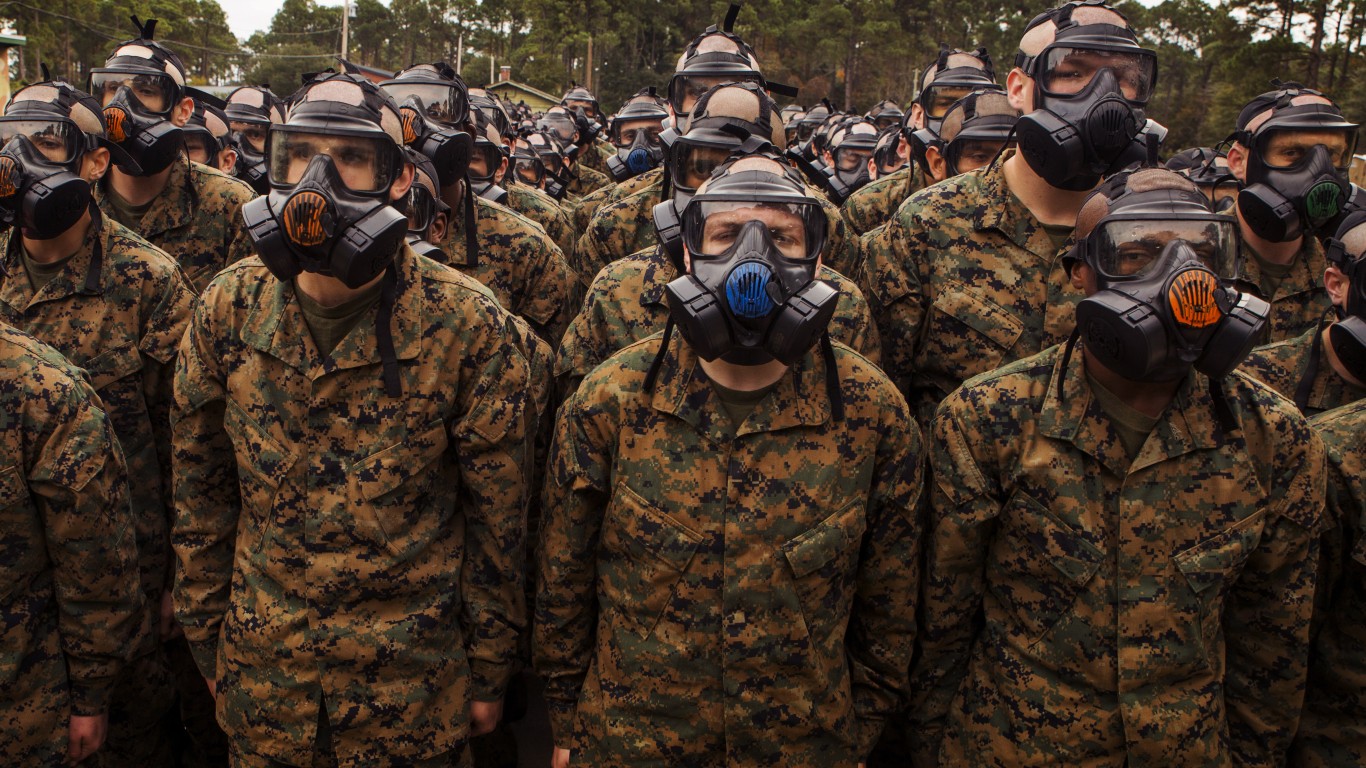
Marine Corps Recruit Depot in Parris Island, South Carolina
>Branch: Marine Corps
>Type of training: Basic Training: 12 weeks
[in-text-ad]
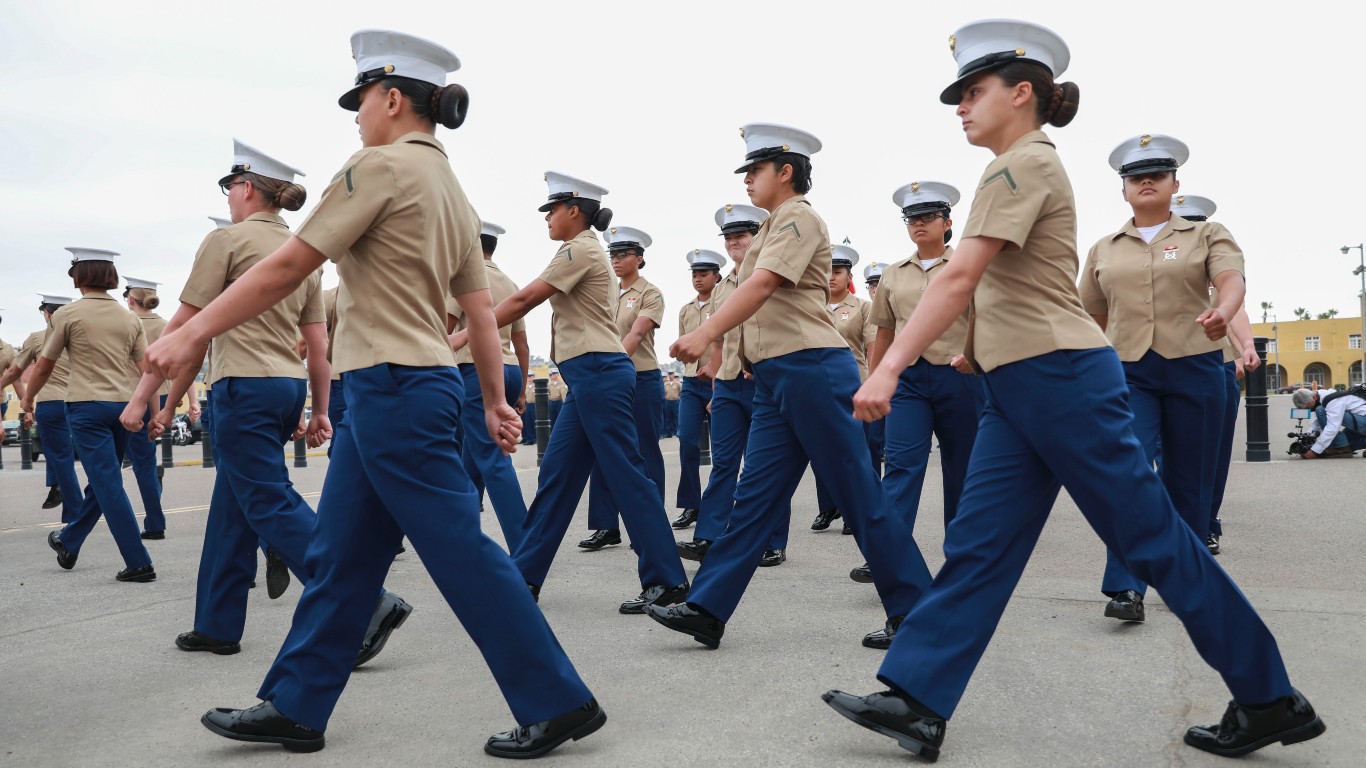
Marine Corps Recruit Depot in San Diego, California
>Branch: Marine Corps
>Type of training: Basic Training: 12 weeks
Naval Special Warfare Training Center Coronado, California
>Branch: Navy
>Type of training: Navy SEALs Training: 12+ months
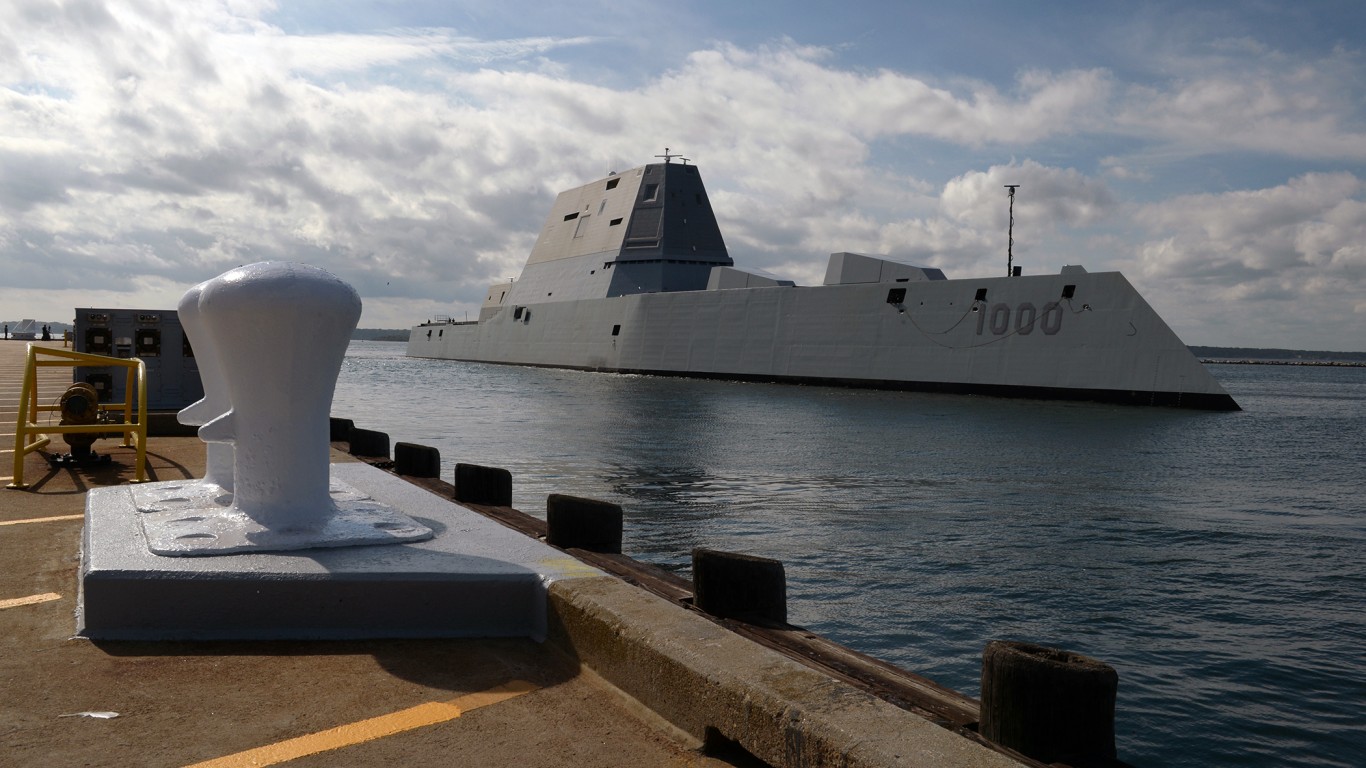
Naval Station Newport, Rhode Island
>Branch: Navy
>Type of training: Navy Officer Candidate School Training: 13 weeks
[in-text-ad-2]

Quantico, Virginia
>Branch: Marine Corps
>Type of training: Marine Officer Candidate School Training: 6 months
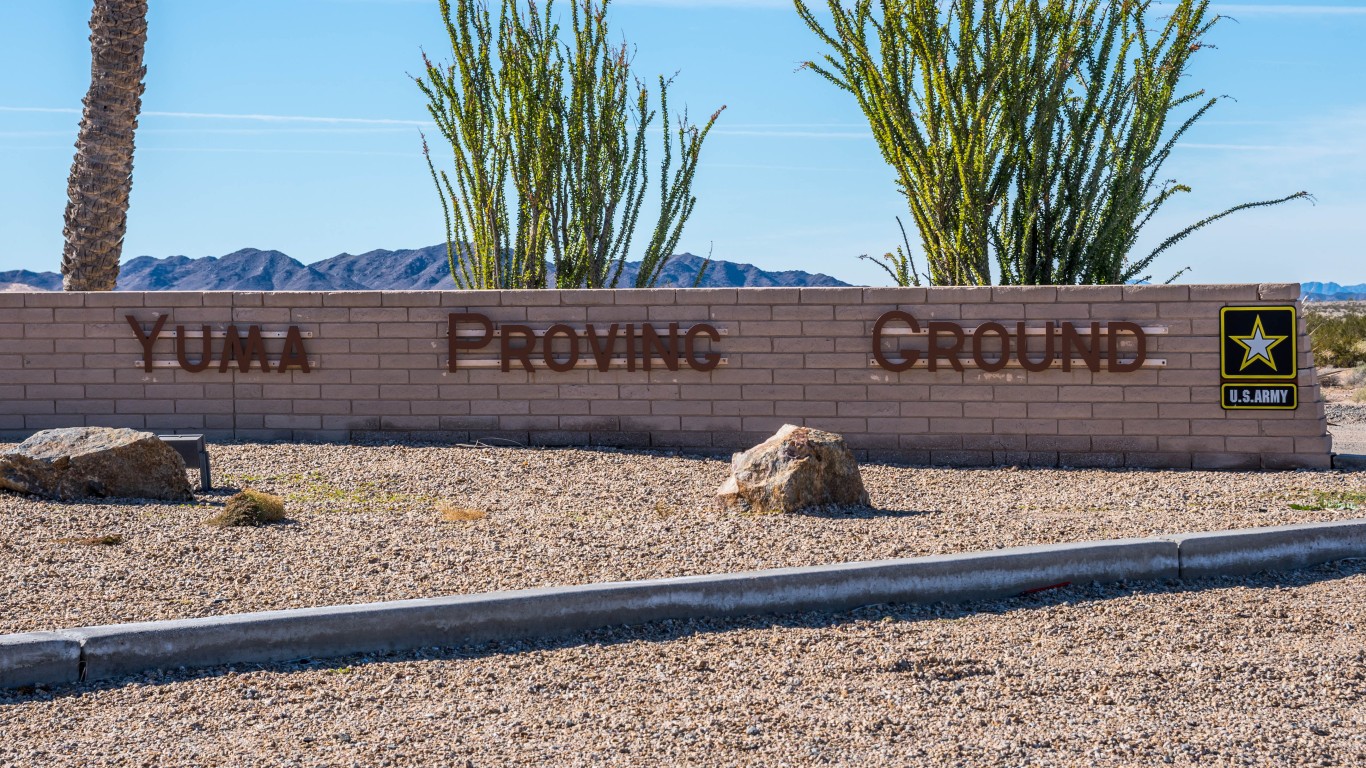
Yuma Proving Grounds, Arizona
>Branch: Air Force
>Type of training: Air Force Pararescue Specialists Training: 70 weeks
The #1 Thing to Do Before You Claim Social Security (Sponsor)
Choosing the right (or wrong) time to claim Social Security can dramatically change your retirement. So, before making one of the biggest decisions of your financial life, it’s a smart idea to get an extra set of eyes on your complete financial situation.
A financial advisor can help you decide the right Social Security option for you and your family. Finding a qualified financial advisor doesn’t have to be hard. SmartAsset’s free tool matches you with up to three financial advisors who serve your area, and you can interview your advisor matches at no cost to decide which one is right for you.
Click here to match with up to 3 financial pros who would be excited to help you optimize your Social Security outcomes.
Have questions about retirement or personal finance? Email us at [email protected]!
By emailing your questions to 24/7 Wall St., you agree to have them published anonymously on a673b.bigscoots-temp.com.
By submitting your story, you understand and agree that we may use your story, or versions of it, in all media and platforms, including via third parties.
Thank you for reading! Have some feedback for us?
Contact the 24/7 Wall St. editorial team.

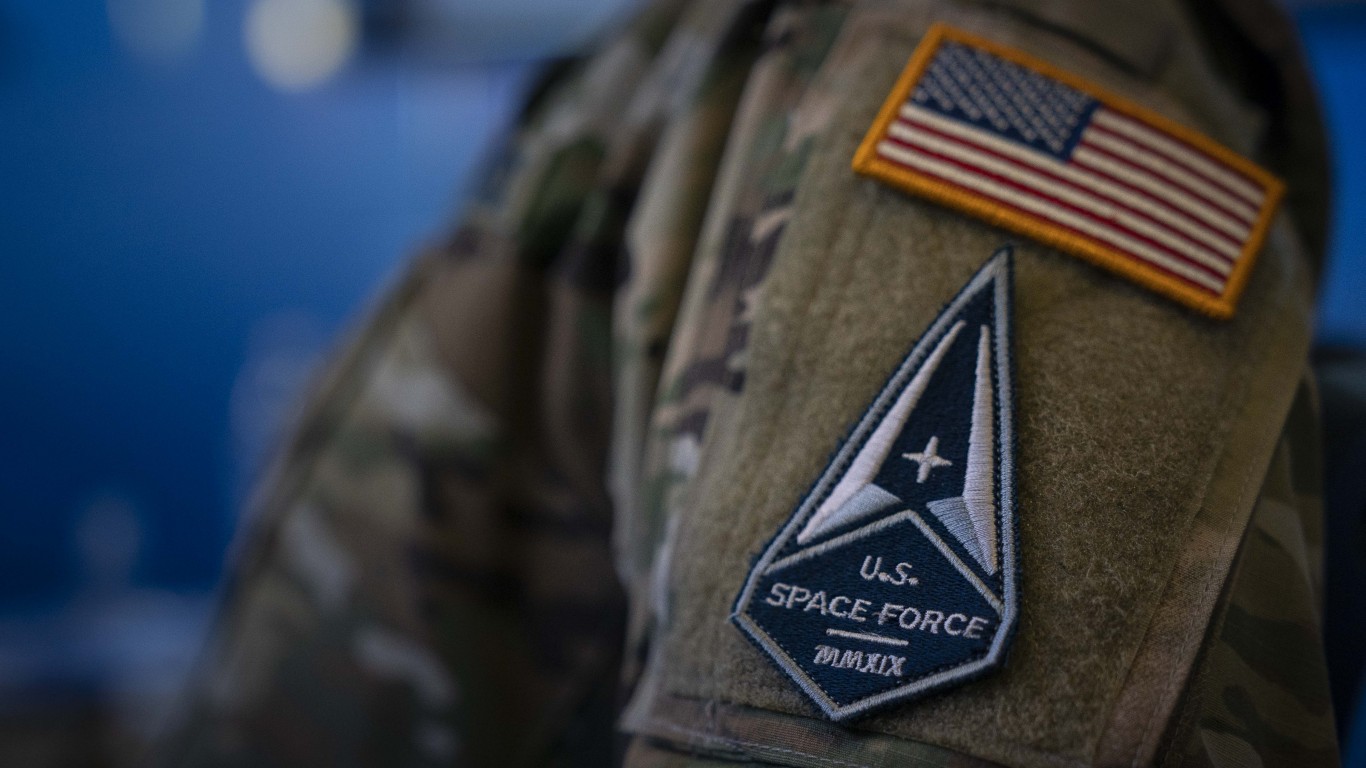 24/7 Wall St.
24/7 Wall St.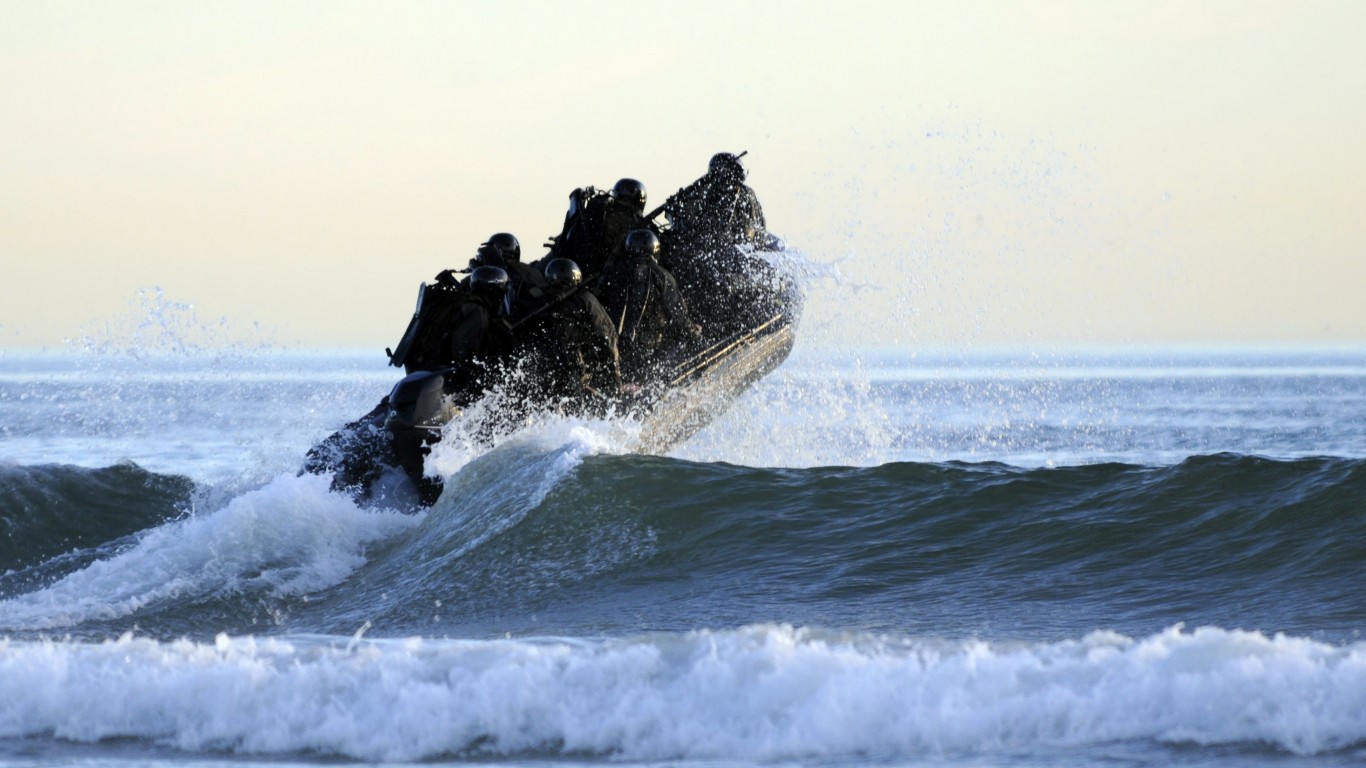 24/7 Wall St.
24/7 Wall St.